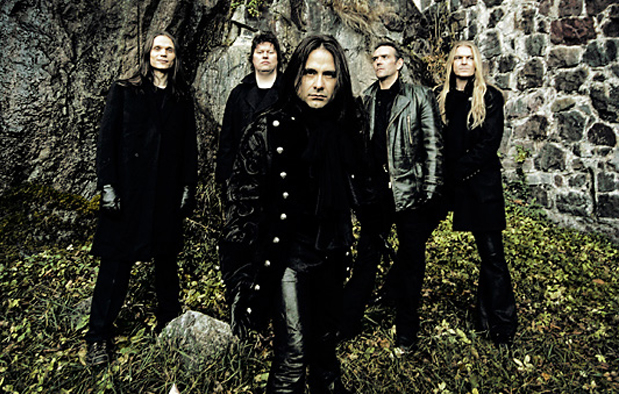Interview with Timo Tolkki: Symfonia's Power Metal Visionary
All the latest guitar news, interviews, lessons, reviews, deals and more, direct to your inbox!
You are now subscribed
Your newsletter sign-up was successful

Timo Tolkki is power metal royalty. From Stratovarius to Revolution Renaissance and now Symfonia, the Finnish guitarist was once ranked by Guitar World as one of the 50 fastest players in the world (27th, in fact).
The dude can shred, and he also seems to have a direct line to wherever it is that crushing power metal riffs and anthemic vocal melodies come from. If you liked Tolkki's work in Stratovarius, you'll also dig Symfonia's debut, In Paradisum. The album sounds at once familiar and new, and, of course, features lots of blazing axework.
Tolkki was with Stratovarius from 1985 until 2008, whereupon he threw himself into Revolution Renaissance, releasing three albums between 2008 and that band's breakup in 2010. And now there's Symfonia, featuring former Angra singer André Matos, ex-Stratovarius bass player Jari Kainulainen and former Sonata Arctica keyboard player Mikko Härkin (Uli Kusch played on the album but has bowed out due to a hand injury, replaced on tour by Alex Landenburg) .
"I'm getting everything from Symfonia that I was getting from the previous bands as well," Tolkki says. "They all had their time. Each band is different, with different members and personalities. I'm one of these people who thinks a band needs a leader, but that comes with some responsibility, and it's not easy to be the leader. In Symfonia we have two leaders, me and André, so we have to have conferences sometimes! [Laughs]. He's Brazilian and I'm a Fin, so the culture clash is there. It's very interesting: Revolution Renaissance had two Brazilians as well. I have a Brazilian curse! Some kind of voodoo or something! God only knows!"
Tolkki pauses while considering his next thought, no doubt weary of the back-and-forth in the press about his departure from Stratovarius, before offering, "… and Stratovarious was completely on its own. It's a long, long story, but it's a good story. Let's not forget the good times. A lot of people concentrate on the past, but they don't think of the good years."
As a band leader and primary songwriter, who has such a clearly identifiable sound, it might be surprising that Tolkki's songwriting process is organic.
"I don't use brains when I compose … It's not an intellectual process," he says. "Sometimes I get songs that are complete - I go to a keyboard and the song comes," he says. "I can't explain it, and I don't have to, because I don't want to touch this thing, whatever it is. I think it's a gift for me."
All the latest guitar news, interviews, lessons, reviews, deals and more, direct to your inbox!
He presents his musicians with what he describes as "horrible" demo tapes to learn their parts, "… then when they go to the actual production it's very hard to get them out of the track they have in their head. So most of the time I spend in the studio is to make the musicians unlearn what they have learned. My biggest problem is that I don't know what I want, but I do know what I don't want."
Guitar solos come from an equally stream-of-consciousness place for Tolkki. Rather that agonize over them in the demo stage or in the studio, his says his main concern is to simply get them out of the way.
"I've played guitar for 35 years, and this sounds a little bit weird but I never considered myself a guitar player. Ever. I consider myself as a composer. Not to say that I'm somebody like Beethoven, but although he played many instruments, he was a composer. Nobody called him a piano player."
Tolkki concedes that guitar is his main instrument - he's been playing it since he was seven years old - but that his relationship with the instrument is changing. "Now I'm getting older - and I'm 45, pushing 50 - the more I think about the emotional aspect of guitar playing rather than speed and the technical side. I am not interested in what I call pinball machines, these young guitar players who sound like pinball machines.
At the same time, I do understand that especially in metal, a lot of things are to impress people, and maybe to impress the particular players' ego." He pauses again, and concludes, "And I have a big ego in a way, but not as big any more as it used to be."
Peter Hodgson is a journalist, an award-winning shredder, an instructional columnist, a guitar teacher, a guitar repair guy, a dad and an extremely amateur barista. He runs a blog, I Heart Guitar, which allows him to publicly geek out over his obsessions. Peter is from Melbourne, Australia, where he writes for various magazines, including Guitar World.

